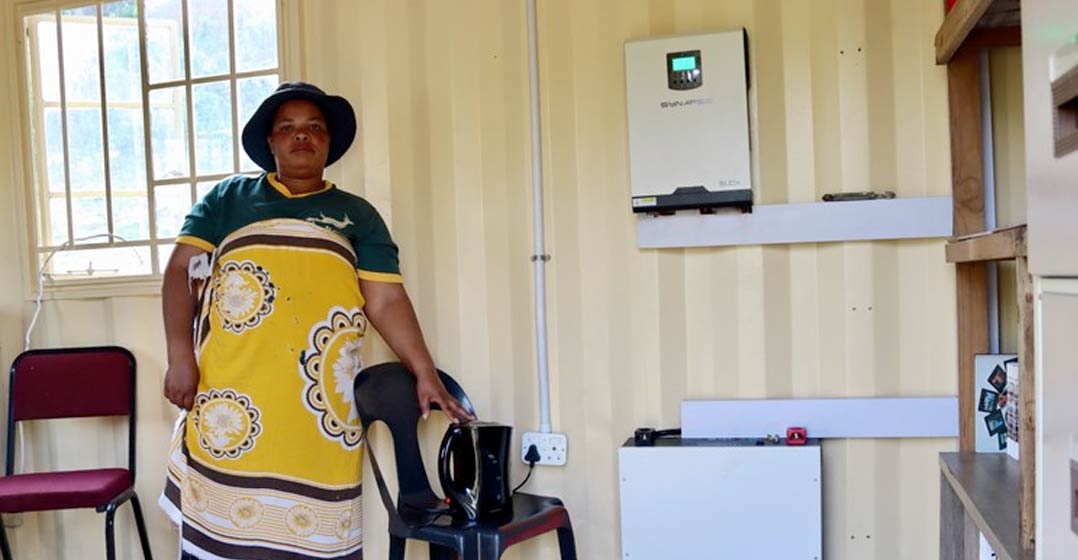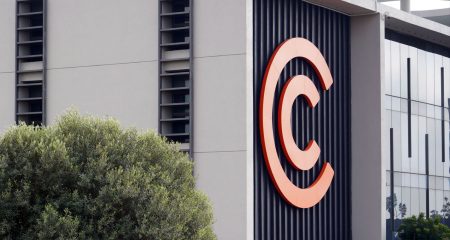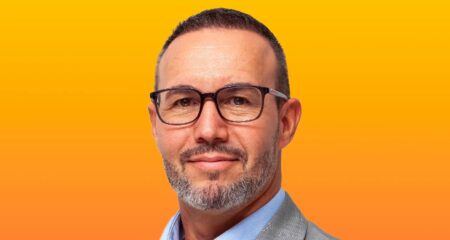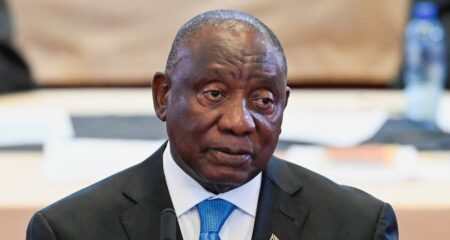
Activist organisations have helped establish three community-owned renewable energy projects in informal settlements around the country.
The Urban Movement Incubator: Energy Democracy Project, launched in 2021, brought together environmental organisations groundWork and Sustainable Energy Africa with Durban-based social movement Abahlali baseMjondolo, the South Durban Community Environmental Alliance, and the Vukani Environmental Movement in eMalahleni, Mpumalanga.
In 2022, three solar power units were installed in eKhenana, Wentworth and eMalahleni.
In eKhenana, at Cato Manor, a communal electricity hub and library was set up in a container.
“Now we have a library in a container with lights, a fridge and TV. When there is load shedding, people can come together and watch TV; they can boil water and so forth… It can also be a safe space at night during load shedding,” said Thapelo Mohapi, general secretary for Abahlali baseMjondolo (ABM).
In its first year, the Energy Democracy Project focused on raising awareness of renewable energy, says Siphesihle Mvundla, Energy Democracy Campaigner at groundWork. This included community meetings where people explained their problems with local officials about accessing electricity and rates.
Mohapi said ABM joined the project because “energy has been a crisis for the poor for years” as “people … have had to connect themselves to the grid unlawfully, posing risks around shack fires and electrocution”.
Load shedding
Promise Mabilo, coordinator at Vukani Environmental Movement, said it was initially difficult to get the eMalahleni community to understand what the project was about. But once the solar unit was set up, people understood “exactly what we are trying to achieve”.
People use the energy hub at Vukani’s offices to charge phones and laptops during load shedding.
Josh Dippenaar, of Cape Town based non-profit Sustainable Energy Africa, said that although the solar units in the three communities demonstrated their value, reducing the effect of load shedding and power outages through rooftop solar installations is “not a scalable model for low-income communities”.
Read: Uncapped fibre for R5/day – Isizwe’s big gambit
“We need to find a way of building large community solar systems that sit at the heart of a community and are protected as a community asset, similar to a clinic or school,” he said.
This is the mission for the next phase of the project: creating locally owned energy hubs for poor communities and getting local government to adopt policies to make this happen.
- This article was originally published by GroundUp and is republished by TechCentral under a Creative Commons Attribution-NoDerivatives 4.0 International Licence. Read the original article




